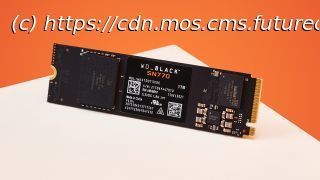It’s a good time to let the hard drive go.
We’ve reached a critical juncture in gaming, one which sees hard drives as simply no longer recommended or, in Starfield’s case, not at all supported by modern games. In their stead are solid-state drives—faster, more efficient, and generally more reliable forms of storage for your machine.
You’re likely reading that and thinking, ‘Well, yeah, of course. I moved to an SSD for my boot drive years ago.’ But our Jorge ran a Twitter poll of PC Gamer readers and found that a good deal still run a HDD inside their machine, around 15% of respondents, and a smaller amount let us know that they were using an HDD as their primary boot drive.
A hard drive, hard disk, or spinning platter inside your machine can be a useful thing—there’s still a case to be made for HDDs as capacious drives for cold storage and archival data. I certainly have a few loaded with old videos from my days making YouTube videos that I refuse to delete. Yet for a boot drive, the SSD is now king, and it’s almost a complete wash in favour of the speedier storage format.
The case against HDDs is becoming more convincing by the year. In the first instance, HDDs can no longer claim a price advantage over SSDs when it comes to lower capacities up to around 1TB.
A 1TB WD_Black Performance HDD: $48.
A 1TB WD_Black SN770 NVMe SSD: $49.
And we’re talking night and day for speeds and feeds here. That HDD will run at up to 150MB/s, and that’s best case scenario, whereas the SN770 manages almost 35x that, at 5,150MB/s sequential read. That’s not even close to the fastest NVMe SSD today, either. A PCIe 5.0 SSD could reach as fast as 12,000MB/s seq. read. In realer terms, an SSD will be most dominant in 4K random access, easily outstripping an HDD by many magnitudes.
Above a 1TB capacity and for cheaper, slower hard drives such as those intended for CCTV always-on applications, you can still today see a cash benefit to buying a HDD. They’re undoubtedly cheaper, most of all when over 4TB. Yet there’s a very good case to be made against buying a singular massive HDD and running everything off it.
Gaming in general is moving away from HDDs. On the one side, you have cheaper drives spurring PC gamers and manufacturers to ditch the HDD even on the cheapest machines in favour of solid state.






